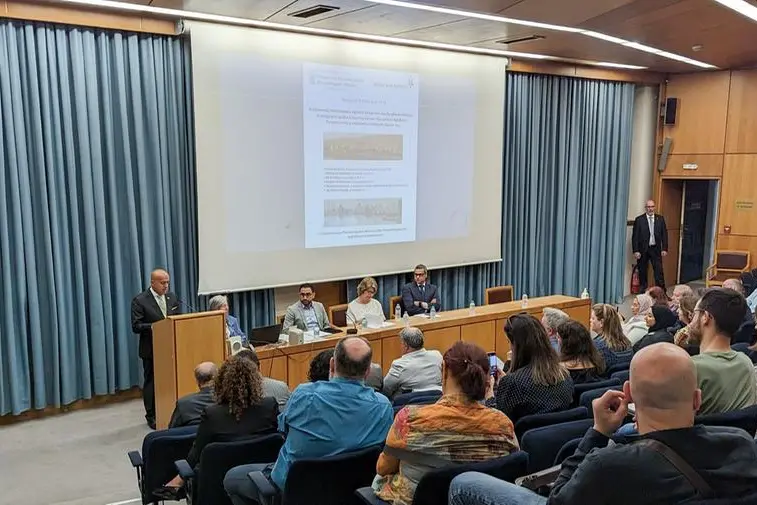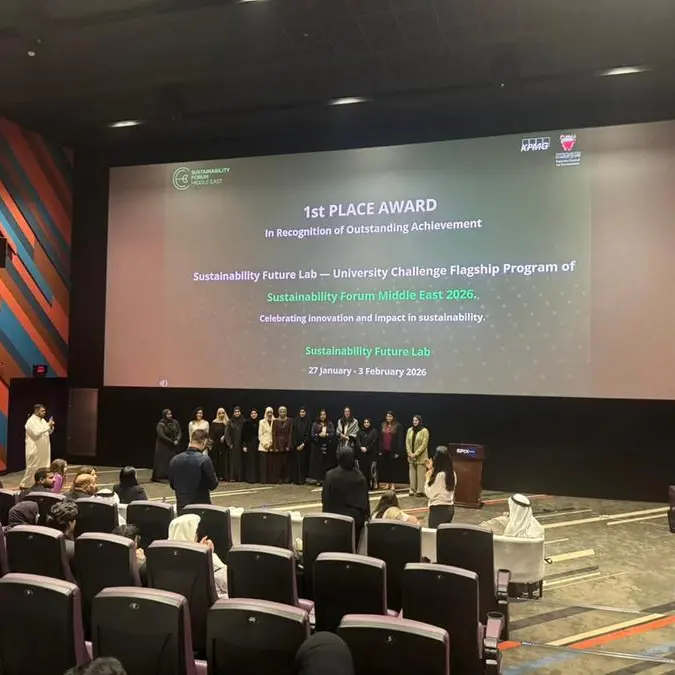PHOTO
Thessaloniki, Greece: To commemorate Sharjah’s distinguished title as the Guest of Honor at the 20th Thessaloniki International Book Fair (TIBF), the University of Athens hosted a symposium titled “Timeless Cultural Bonds between Greece and the Arab World.” At the event, Emirati and Greek scholars engaged in discourse on scientific and literary topics, exploring the influences and rich cultural legacies shared by Greek and Arab civilisations. Their discussions encompassed the translation of classical and modern literary works, as well as analyses of various sectors contributing to fostering cross-cultural communication.
In attendance were a number of prominent dignitaries from the UAE including HE Dr. Ali Obaid Al Dhaheri, UAE Ambassador to the Hellenic Republic, and HE Ahmed bin Rakkad Al Ameri, CEO of the Sharjah Book Authority.
Literary exchange
Emirati researcher and writer Mohamad El Khalidi discussed the current situation of poetry translation in the UAE and Greece, in addition to the role of translation in transferring poetry, its meanings, and expressions between different languages of the world. Writer Ali Al Abdan reviewed the history of short story literature and the current situation in UAE and Greece. Writer Ibrahim Al Hashemi delivered selected poetry readings from Emirati, Arab, and Greek poetry reflecting diversity, distinction, and human perspectives.
From the Greek side, Eleni Kondyli, Emeritus Professor of Arabic Studies, discussed the links between Arab and Greek cultures throughout history to the present day. Author and translator Persa Koumoutsi and Dr Khaled Raouf presented their perspectives on translating contemporary literature into Greek and Arabic.
Strengthening ties between nations
His Excellency Dr Ali Obaid Al Dhaheri, UAE Ambassador to the Hellenic Republic, inaugurated the session with a compelling speech, in which he said, “This meeting not only enhances cultural exchange but also embodies the spirit of global connectivity. With Sharjah celebrated as the Guest of Honour at TIBF and the first Arab city to receive this prestigious accolade, we express our deepest gratitude to the Emirati writers and translators for their dedicated efforts in showcasing the vibrant Emirati cultural scene. We also extend our gratitude to the Greek government for their exceptional hospitality and assert that these collaborative efforts significantly strengthen the ties between our nations.”
Sharjah’s contribution to the success of TIBF
Nikos Koukis, President of the Hellenic Cultural Foundation, expressed his delight in welcoming Sharjah and noted that a significant part of TIBF’s success is attributed to the emirate’s active and distinguished participation. Opening the doors for visitors to explore the rich Emirati and Arab culture, he affirmed that Sharjah’s participation contributed to enhancing cultural understanding and cross-cultural exchange between the UAE and Greece.
The impact of Arab scholars on Greek knowledge
Professor Sofia Papaioannou, Vice Chancellor of Academics, International Relations, and Outreach at the University of Athens, stated the interconnection between Arabic and Greek literary traditions. Emphasising the role played by Arab scholars in safeguarding and translating Greek scientific knowledge into Arabic, she noted this was during a period when Western societies overlooked this reservoir of intellectual wealth.
Reflecting on her academic journey, Professor Papaioannou shared, “In the 1990s, my exploration of Arabic literature led me to the works of Naguib Mahfouz, and I was pleasantly surprised to find that his writings had already been translated into Greek well before gaining global recognition through English translations. This serves as a reminder of the critical importance of translation in facilitating meaningful cross-cultural dialogue and fostering global cultural exchange.”
New Chapters of Cultural Cooperation
Regarding the cultural exchange between the two nations, Nopi Hatzigeorgiou, Director of TIBF, said, “Today marks the end of another chapter in the relationship between the UAE and Greece, and the beginning of many more to come. The foundation of this relationship was laid during the Sharjah International Book Fair, where we were introduced to the richness of the Emirati literary movement through 23 books translated into Greek. This impressive number revealed the extensive commonalities between our cultures, particularly regarding knowledge and cultural exchange between the Greek and Arab civilisations. Through translation, we have uncovered the essence of our shared bonds and relationships. These translations are just the first step, with many more to follow, aimed at deepening the Greek reader’s understanding of contemporary Arab and Emirati literature.”
Exploring connections through translation
Eleni Kondyli, Professor of Arabic Literature at the University of Athens, highlighted the deep-rooted connections between Greek and Arab literature. She noted that both cultures value knowledge and embrace dialogue. Kondyli discussed the UAE's geographical location and diverse population, which contribute to its regional leadership and openness. She also detailed historical ties between the UAE and Greece, including Arabic terms in Greek and evidence of Greek monasteries in the UAE. Additionally, she pointed out similarities between Arab and Greek literature, such as the tales of Luqman the Wise and Aesop's fables.
Mohamad El Khalidi, discussing the Greek edition of his poetry collection released on the sidelines of TIBH, noted that writers often only consider translation later. However, when translating, it is crucial to ensure the foreign version accurately conveys the original message. Upon reviewing his translated work and meeting the translators, Al Khalidi felt a deep connection with them, akin to a profound friendship. He said, “This writer-translator interaction underscores the vital role of translation in sharing ideas and cultures, strengthening literary and cultural bonds globally.”
The Contribution of Arabs to Greek Knowledge
Ali Al Abdan, in his insightful presentation, spoke of the influence of Greek knowledge on Arab civilisation, particularly during the renowned translation movement in Baghdad. He noted that Arab scholars not only translated Greek works but also built upon them, expanding the frontiers of knowledge. Regarding the realm of music, Al Abdan explained how Greek musical scales were seamlessly integrated into Arab culture, with renowned scholars such as Al-Farabi and Al-Kindi playing an important role in translating and merging Greek musical systems with established Arab scales. Furthermore, Al Abdan highlighted the striking similarities in storytelling traditions between the UAE and Greece, underscoring the vital role that literary magazines have played in nurturing and preserving these rich cultural legacies in both societies.
A Window into Emirati Poetry
Ibrahim Al Hashemi discussed the prominence of poetry in Arab and Greek civilisations, highlighting its key role in expressing human emotions and fostering cultural exchange. He recited excerpts from several poems, including some of his work, illuminating cities’ rich heritage and history and their cultural tales.
Sharjah Illuminates GCC Literature
Persa Koumoutsi and Dr. Khaled Raouf commended the initiative spearheaded by the Sharjah Book Authority to translate Emirati literature into Greek. This ambitious project involved the translation of Emirati literary works, shedding light on the distinctive features of contemporary Emirati literature in terms of language and style. The duo highlighted that Greek cultural elites have been acquainted with modern Arabic literature since the 1990s, a trend that gained momentum following Egyptian writer Naguib Mahfouz’s Nobel Prize accolade.
Furthermore, they commended Sharjah’s pioneering role as the Guest of Honour at this year’s TIBF, noting how this participation exposed Greek audiences to contemporary literature from the GCC. They reiterated that this engagement broadened the horizons of Greek readers, offering them insights into the diverse literary landscape of the Gulf region through the works of esteemed Emirati authors showcased at the book fair.




















